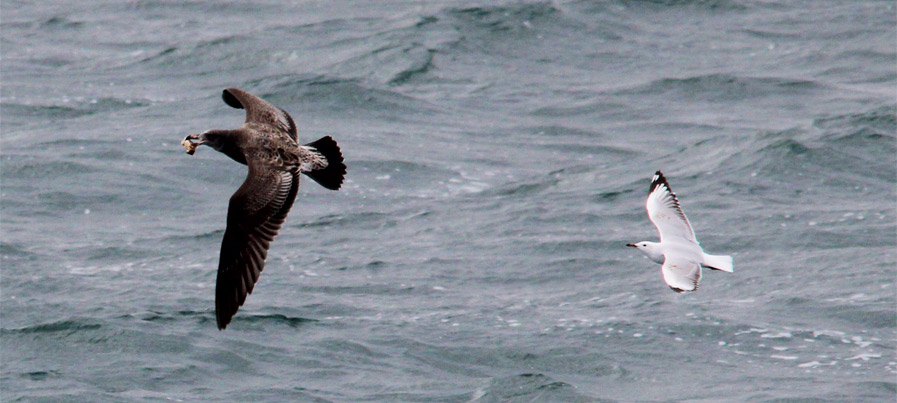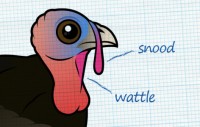Gull Week Bird Term: Kleptoparasite
We're celebrating gulls on the blog this week! Today we'd like to share a bird term that relates to some species of gulls. Let's find out about kleptoparasitism!

Kleptoparasitism is just what it sounds like - parasitism by theft (klepto-). It basically refers to one animal stealing food from another. Before we go on, it should be made clear that gulls are not the only species that engage in this behavior. They aren't even the only birds that do so.

Why would one animal steal food from another? In some cases, the thief takes prey items that it would not be able to capture on its own. Sometimes the kleptoparasite steals food opportunistically, or to save the time and effort of obtaining prey. Kleptoparasitism can also refer to the theft of non-food items, like when Chinstrap Penguins steal nest material from other penguins to use in their own nest.
Birds in the seabird family Skua are known for their kleptoparasitic behavior. Some species of skua obtain a significant percentage of their food using this method, stealing prey caught by other seabirds.
Frigatebirds are known for this behavior as well, giving them the appropriate nickname "pirate of the sea".
Gulls can be both perpetrators and victims of kleptoparasitism. Heermann's Gulls and Laughing Gulls are known to steal fish from Brown Pelicans, snatching anything that escapes from the pelican's bill as it surfaces from a hunt. Gulls may chase others of their own species in order to steal freshly caught prey or found food items.

Chasing down deep diving fish hunters is a way for non-diving gulls to obtain food not otherwise available.

Gulls have also been known to steal food from humans! Has this ever happened to you?






Comments
Leave a comment
Thank you!